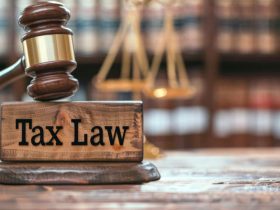When you sell a property that is not your primary residence and makes a profit, you are liable for capital gains tax in the UK. They can be buy-to-let property, business premises, land, or inheritance property.
On one side, land prices are increasing, and the capital gain tax is also growing in the same pattern. This scenario has both a positive and negative impact on landowners. However, under certain conditions, you can avoid paying capital gains on property.
Here is a handy guide for landowners to avoid paying CGT on buy-to-let properties. We’ll cover the following points:
Table of Content
What is a buy-to-let property?
A buy-to-let property is a house or apartment bought to rent to someone else to make money.
It is not their primary residence, so the owner doesn’t use this property as their only home. Over time, this property grows in value and produces capital gain when the owner sells them.

What is capital gains tax?
Capital Gains Tax (CGT) is a tax payable to the HMRC when you profit from selling or disposing of an asset.
It is calculated based on the profit and not on the total revenue of the asset.
For example, you purchase property for £500,000 and sell it for £600,000. The profit made is £100,000, and the CGT is applicable.
When to pay capital gains tax on buy-to-let?
Almost all your assets except the main residence are liable for CGT on a property when you profit from it. These assets include:
● Any property which is not your primary home
● Personal assets costing more than £6,000, excluding your vehicle
● All your investments not held in an Individuals Saving Account (ISA) or Personal Equity Plan
● Some business resources
Even if you are using a part of your main home as a rental property or a business premise, you are liable for CGT on the profit made out of that area.
You have to make CGT payments within 30 days of the property sale. It is mandatory after 6th April 2020, and you must notify about the sale to the HMRC during this period.
What is the CGT rate on a buy-to-let property?
Your taxable income decides the capital gains tax rate on buy-to-let property. If you earn £50,000 or less, you are a basic rate taxpayer class and pay CGT @ 18%. However, individuals with more than £50,000 come under the higher rate taxpayer class and pay property capital gain tax @ 28%.
How to avoid paying CGT on buy-to-let properties?
1. Letting relief
If you have let out a part of your property, your profit on selling it is liable for CGT. However, if this property has been your primary residence at some point, you can avail of the letting relief to reduce CGT.
After April 2020, there is a slight change in the condition of availing the government relief. Now, you have to live in the property with your tenants at the same time for letting relief while selling it and reducing CGT.
Letting relief is lower than
● Private Residence Relief,
● £40,000, and
● Chargeable profit made out of renting your home, but not when it was empty
2. Private Residence Relief
If you are selling your main residence, you come under the Private Residence Relief rules, and usually, no CGT applies to you.
But, if you were staying in the home for some time and then let it go, the PRR will be applicable for the number of years you were staying and the last nine months before selling the property.
3. Use tax-free allowance
Every individual has a tax-free allowance separate from their tax allowance. The tax-free allowance for the year 2024-25 is £3,000.
For example, if you made a capital gain of £35,000, you will pay CGT for £32,000.
4. Sharing ownership
If you are married and have 100% ownership of the property, sharing ownership can be a great way to reduce CGT. Now, you together receive a double tax-free allowance of £6,000.
For example, you made a profit of £120,000 by selling a buy-to-let property. But you have to pay CGT only on the yield of £114,000 ( £120,000 – £6,000).
5. Cost deduction from capital gain
You can reduce the capital gain by deducting some costs related to buy-to-let property sales. These are:
● Fees of the solicitor or estate agents
● Stamp duty
● Modification or improving your property, such as extensions
● Bills for conveyancing or auction fees
6. Think about the best time to sell
If you sell other assets like stocks and shares, you need to wait for another year to sell the property. The profit from selling those assets will add to the total capital gains you earn from selling the property and increase your capital gains tax.
7. Set up a limited company
CGT applies to private individuals, but what if you sell a property through a limited company? Yes, here’s an exception for individuals to save themselves from higher CGT rates.
Buy-to-let owners can set up limited companies and sell their properties via the company. They need to pay a corporation tax against the sale, which is much lower than the higher rate CGT.
For example, Maya is a buy-to-let owner. She sells the property and makes a profit of £50,000. She needs to pay a higher rate CGT of 28% on the gain (£50000-£3,000), £13,160.
She sets up a limited company and sells the same property making £50,000 profit. But, the corporation tax she needs to pay is 19% on the profit, i.e. £9,500.
8. Flip your home
To reduce CGT, landowners may consider using their buy-to-let land as their main residence. Is this possible? Yes, it is.
There is a process known as flipping, where the owner can use an unoccupied rental property as their main home. They must put their name on the electoral register, council tax, and utility bills. But, they must flip residences within two years of their combination of homes changing.
However, it is essential to consult your accountant before taking this attempt, as there are several criteria to consider, and the government may ask you for proof at different levels.

FAQ
What is Property Gains Tax?
Property gains tax, commonly known as Capital Gains Tax (CGT), is a tax on the profit made from selling a property that isn’t your main home. For instance, if you sell a rental property for more than you bought, your profit is subject to CGT.
How Does Capital Gains Tax Work on Property?
When you sell a property, the profit (selling price minus purchase price and allowable expenses) is your capital gain. In the UK, you get an annual CGT allowance (£3,000 for 2024/25). Any gain above this amount is taxed at 18% (for basic rate taxpayers) or 28% (for higher rate taxpayers). For example, if your gain is £20,000, and you’re a higher rate taxpayer, you pay 28% on £17,000 (£20,000 – £3,000), which equals £4,760.
How to Avoid Capital Gains Tax on UK Property?
To minimise or avoid CGT on UK property, consider the following strategies:
- Primary Residence: If the property is your main home, it is usually exempt from CGT.
- Use Allowances: Make use of your annual CGT allowance.
- Spousal Transfers: Transfer ownership to a spouse before selling to use both allowances.
- Letting Relief: If the property was your main home and then let out, you may qualify for letting relief.
For example, if you sell a property jointly owned with your spouse, you can combine both CGT allowances, potentially exempting up to £6,000 of gains from tax.
Wrapping up
When you are selling a buy-to-let property, you may face several hurdles. A good accountant can help you cross every hurdle and save your money from paying huge CGT.
This guide will explain how to avoid capital gains tax on selling a buy-to-let property, but you must not perform any of these measures without professional advice.











Leave a Reply